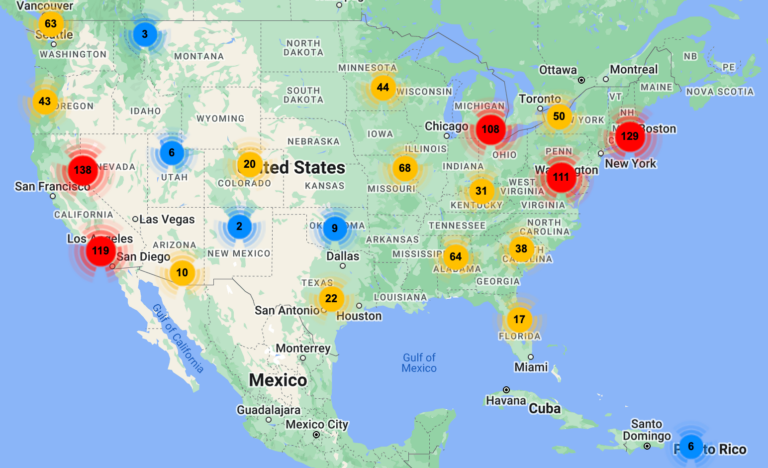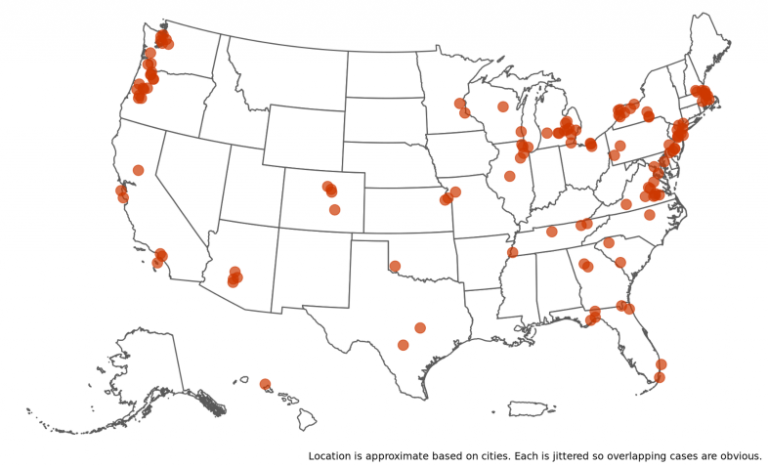
The Economic Perils of Artificial Intelligence: An Impending Collapse?
[Editor’s note: This article was completely written by ChatGPT, with emphasis added.]
Prompt: Write an article on how artificial intelligence, through the displacement of humans, can cause the economic collapse of nation states due to lack of income taxes.
Artificial Intelligence (AI) has rapidly evolved over the past decade, revolutionizing various industries, from healthcare to finance. As AI advances, concerns are being raised about its potential impact on job markets and the economy. One alarming perspective suggests that the displacement of human workers could lead to an economic collapse of nation states due to a significant decline in income taxes. In this article, we will delve into this potentially grim scenario and discuss the factors contributing to it.
AI Displacement and Unemployment
AI-powered automation is paving the way for significant technological advancements, enabling businesses to streamline processes, reduce costs, and increase efficiency. However, as more tasks become automated, it is undeniable that certain jobs, especially those involving repetitive or predictable tasks, will be at risk of being replaced by AI.
While it is crucial to recognize the incredible potential that AI holds for creating new job opportunities and economic growth, it is equally important to address the potential consequences of AI displacement. As human workers are gradually replaced by AI, unemployment rates are predicted to rise, leading to a decline in income tax revenue.
Lack of Income Taxes: A Severe Blow to Nation States
Income tax is one of the primary sources of revenue for a nation state. The funds collected through income taxes are essential for financing infrastructure, healthcare, education, and national security, among other critical public services. With a declining workforce and a consequent decline in the number of income taxpayers, governments will inevitably see a slump in income tax revenue, putting immense strain on their ability to sustain themselves.
Economic Consequences and Challenges
1. Shrinking Government Budgets: With a significant decrease in income taxes, governments will face severe financial constraints. This will limit their ability to invest in critical areas such as public infrastructure, social welfare programs, and research and development, hindering economic growth in the long run.
2. Increased Socioeconomic Inequality: As the gap between those who benefit from AI technology and those who suffer displacement widens, socioeconomic inequality will intensify. This can lead to social unrest, reduced consumer spending, and an overall weakened economy as a result of decreased purchasing power.
3. Decline in Economic Stability: Governments rely on income tax revenue to maintain economic stability, facilitate economic recovery during crises, and redistribute wealth to ensure a balanced society. With AI-driven unemployment and a decline in income taxes, the safety nets required for stabilizing economies during uncertain times will be severely compromised.
Mitigating the Impacts
To prevent a potential collapse of nation states due to a lack of income taxes caused by AI displacement, governments must take proactive measures:
1. Redefining Tax Structures: Governments can explore alternative sources of income beyond just income taxes. This could include reassessing corporate taxes, imposing wealth taxes, or introducing new forms of taxation driven by emerging sectors such as data-driven enterprises.
2. Investing in Education and Reskilling: Governments must prioritize investing in education and reskilling programs to equip current and future workers with relevant skills required in a rapidly evolving job market. This will not only enhance employability but also foster entrepreneurship and innovation.
3. Fostering AI-Driven Industries: Governments can encourage the growth of AI-driven industries by providing incentives, funding research and development projects, and creating supportive regulatory frameworks. This can help create new job opportunities while enhancing economic growth.
Conclusion
While the potential impact of AI displacement on income taxes and the economy is cause for concern, it is crucial to approach this issue with a proactive mindset. Governments must adapt their tax systems, invest in education and reskilling, and foster AI-driven industries to mitigate the economic risks. By doing so, we can harness the transformative power of AI while ensuring a stable and inclusive future for all.








Leave a Reply